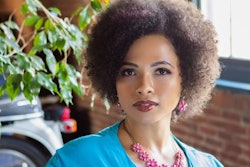In the wake of the shooting at the Pulse nightclub in Orlando, where gunman Omar Marteen took the lives of 49 early last Sunday morning, the higher education community is offering its support.
In a statement released by Howard University, President Wayne Frederick urged students to speak up and speak out against all hate. “Intolerance of one group is intolerance of all. Our students, some of whom identify as LGBTQ, must be able to feel safe in their space, be it inside or outside the classroom.”
Many victims of the Orlando shooting were college students. The need for all students to feel included on and off campus is a priority for many colleges and universities nationwide.
Dr. Robert T. Palmer, Associate Professor in the Department of Educational Leadership and Policy Studies at Howard University, said, “Historically Black colleges and universities (HBCUs) are actively acknowledging the need for safe spaces and inclusive climates for their LGBTQ students.” The support from higher education is a sign of progress but more work is needed. “As a researcher, all students need to be included, and HBCUs are working to ensure all students are welcome and supported,” Palmer added while participating at a recent vigil for Orlando victims in the DuPont Circle area of Washington, D.C.
Safe spaces for LGBTQ students are not as inclusive as they could be on college campuses since some do not account for students or faculty from different ethnic backgrounds and faiths, according to assistant professor of educational leadership and research at Florida Atlantic University, Dr. Cristobal Salinas Jr. “It is a critical time to advocate for our peers and our students across all backgrounds. When we talk about multiculturalism and social justice, that has to include Latinx, the Black community, those of Muslim faiths, and all marginalized groups within the LGBTQ community.”
Although LGBTQ spaces in higher education are largely available in recent years, critics cite the lack of support for LGBTQ students of color. “College campus faculty, administrators and staff need to be more inclusive beyond the communities they identify with. Research suggests the need for intersectionality to be accounted for when supporting LGBTQ students, and practitioners need to be more diligent about implementation,” said Salinas.
“Higher education professionals need to understand that there are LGBTQ students studying, living, and working on their campuses. We must do better in reaching out to our LGBTQ students and finding ways to support them. LGBTQ student organizations and safe space/ally programs are important, but we need to go beyond these basic minimums,” said California Lutheran University counselor education assistant professor Dr. Dan Tillapaugh.
The National Conference of Race and Ethnicity in American Higher Education (NCORE) has released a letter of solidarity with the Orlando shooting victims and are calling for large-scale dialogue on intersectional inclusion on college campuses.
“Excluded in most of the media coverage are the racial and ethnic dimensions of identities and the brutal loss of such a large number of Queer Latinx people struck down by hate in the prime of their lives and the tremendous loss and grief of their families, friends, coworkers and classmates. Many were college students, and leaders from where they were at in their careers and in their civic life. They were parents, children, siblings, partners, friends and colleagues.”
The American Education Research Association has also released a statement requesting that researchers double-down on their commitment to eliminate hate and violence on college campuses. “We call on the education research community to redouble its commitment to examining how bigotry can be eliminated and respect for diverse communities fostered. In addition, developing and promoting research-based programs and policies to reduce the risk of violence on campuses and in other public areas need to be a major focus of education research.”
According to Salinas, “Higher education can do more to discuss what impacts the LGBTQ communities of color and counseling services that aim to help process everyday lives and acts of violence.”
Tillapaugh added that colleges and universities “need to create opportunities for cultivating civility and finding deeper connections with one another. Intergroup dialogues or interfaith dialogue work on campus can be helpful.”
However, experts say, the outreach should not end at the boundaries of the campus. LGBTQ students of color may not deem that multicultural centers and designated safe spaces on campus are for them and they may seek refuge and more supportive environments off campus.
“The sexual minority men that I have spoken with have always outlined the importance of finding community off-campus because, for them, it serves as a very real reminder that there is a larger LGBTQ community beyond the bubble of their campus,” said Tillapaugh. “The tragedy in Orlando serves as a stark reminder for LGBTQ students that violence is possible, even in spaces that many have largely seen as our safe spaces and sanctuaries.”
To support victims and their families of the Orlando shooting, visit the GoFundMe page set up by Equality Florida.
Jamal E. Mazyck can be reached at [email protected] and on Twitter at @jmbeyond7





















